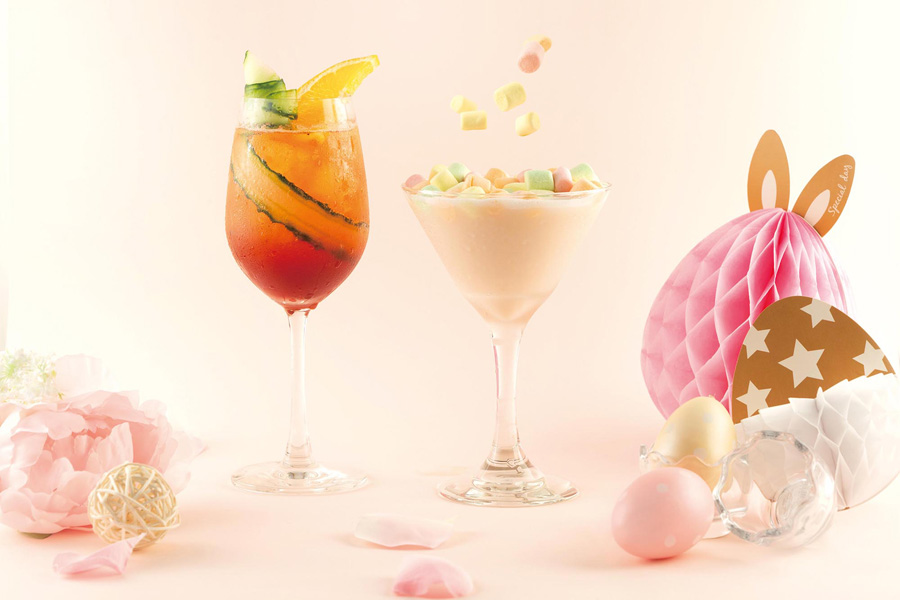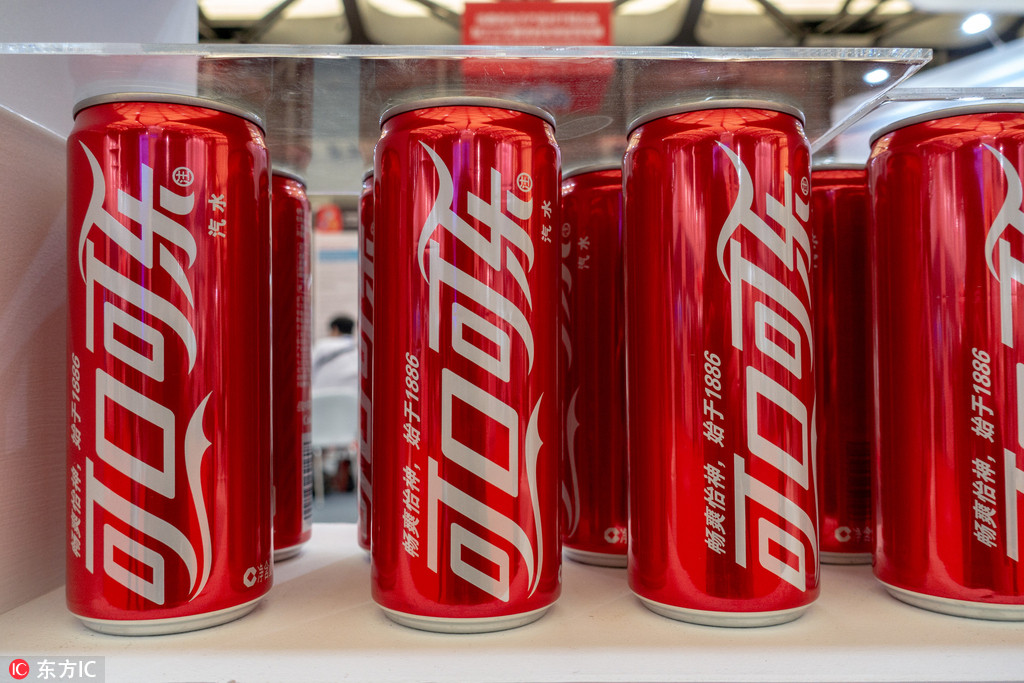

多喝果汁讓人更健康?美國(guó)一項(xiàng)最新研究可能會(huì)顛覆你的認(rèn)知。上周五發(fā)表的一項(xiàng)最新研究報(bào)告稱,即便是100%的純果汁也會(huì)構(gòu)成健康風(fēng)險(xiǎn)。

Many sugar-sweetened beverages have little to no nutritional value and lots of calories, and their harmful health effects have been well-documented. Now, a study links drinking too many sugary beverages -- and even 100% natural fruit juices -- to an increased risk of early death.
很多含糖飲料基本沒有營(yíng)養(yǎng)價(jià)值,而且富含卡路里,有充足的證據(jù)說明它們的健康危害。但一項(xiàng)最新研究表明,喝太多含糖飲料,甚至是純天然果汁,會(huì)增加早逝風(fēng)險(xiǎn)。
well-documented ['wel'd?kjumentid]:adj.證據(jù)充分的
Specifically, drinking an excessive amount of fruit juice could lead to an increased risk of premature death ranging from 9% to 42%, according to the study, published Friday in the journal JAMA Network Open.
一項(xiàng)于5月17日發(fā)表在《美國(guó)醫(yī)學(xué)會(huì)雜志•網(wǎng)絡(luò)開放》上的研究表明,特別是過量飲用果汁可能會(huì)將早逝幾率增加9%至42%。
Overall, the sugars found in orange juice, although naturally occurring, are pretty similar to the sugars added to soda and other sweetened beverages, the study suggests.
研究表明,雖然總體來看,橙汁中的糖是天然的,但仍與汽水等其他含糖飲料的糖十分相似。
"Sugary beverages, whether soft drinks or fruit juices, should be limited," Jean A. Welsh, a co-author of the study and an assistant professor in the Department of Pediatrics at Emory University in Atlanta, wrote in an email.
研究報(bào)告作者之一、美國(guó)亞特蘭大埃默里大學(xué)兒科學(xué)助理教授吉恩•A•威爾士說:“含糖飲料,無論是軟飲料還是果汁,都應(yīng)該加以限制。”
增加心血管疾病風(fēng)險(xiǎn)
Seven US cities, including New York and most recently Philadelphia, have levied taxes on sweetened drinks with added sugar in an effort to reduce consumption.
美國(guó)紐約等7個(gè)城市的政府已對(duì)添加糖的甜飲料進(jìn)行征稅,控制人們消費(fèi),最近費(fèi)城也開始對(duì)此征稅。
The new study defined "sugary beverages" as both sugar-sweetened thirst-quenchers, like soda and fruit-flavored infusions, and 100% natural fruit juices that have no added sugar. So how does fruit juice stack up against soda?
這份新研究將汽水和水果味飲料等飲品、以及100%無添加糖的天然果汁一同定義為“含糖飲料”。
"Previous research has shown that high consumption of sugars like those in soft drink and fruit juices is linked to several cardiovascular disease risk factors," Welsh explained.
威爾士解釋說:“此前的研究表明,從軟飲料和果汁中攝入太多糖分與數(shù)個(gè)心血管疾病風(fēng)險(xiǎn)因素相關(guān)。”
Obesity, diabetes and elevated triglycerides (a type of fat found in the blood) are among the risk factors linked to excessive sugar intake. "Few studies have been able to look at how this consumption might impact mortality risk," she said.
肥胖癥、糖尿病和甘油三酯(血液中的一種脂肪)升高是與攝入過多糖分相關(guān)的風(fēng)險(xiǎn)因素。她說:“之前的研究基本沒有涉及這種糖分?jǐn)z入會(huì)構(gòu)成死亡風(fēng)險(xiǎn)。”
mortality [m??'tæl?t?]:n.死亡數(shù),死亡率

Coca-Cola is diversifying its product range in China by introducing more healthy and functional products. [Photo/IC]
Welsh and her coauthors analyzed data from 13,440 adults 45 and older, nearly 60% men and almost 71% of them overweight or obese.
威爾士與其同事分析了13440名45歲及以上成年人(近60%為男性,其中近71%為超重或肥胖)的相關(guān)數(shù)據(jù)。
People who consumed 10% or more of their daily calories as sugary beverages had a 44% greater risk of dying due to coronary heart disease and a 14% greater risk of an early death from any cause compared with people who consumed less than 5% of their daily calories as sugary beverages, the study showed.
研究顯示,與每日攝入的卡路里中不到5%來自于含糖飲料的人們相比,每日攝入的卡路里中10%以上來自含糖飲料的人們死于冠心病的風(fēng)險(xiǎn)要高出44%,因任何原因早逝的風(fēng)險(xiǎn)高出14%。
Each additional 12-ounce serving of fruit juice per day was associated with a 24% higher risk of death from any cause, and each additional 12-ounce serving of sugary beverages per day was associated with an 11% higher risk.
每天每增加12盎司(約合355ml)的果汁攝入量,任何原因?qū)е碌乃劳鲲L(fēng)險(xiǎn)都將增加24%;每增加12盎司的含糖飲料,風(fēng)險(xiǎn)會(huì)增加11%。
建議的果汁攝入量是多少?
This is one of the first studies to examine the relationship between sugary drinks, including 100% fruit juices, and early death, wrote Marta Guasch-Ferré, a research scientist in the Department of Nutrition at Harvard T.H. Chan School of Public Health and Dr. Frank B. Hu, a professor of medicine at Harvard Medical School, in an editorial published alongside the new study.
哈佛大學(xué)陳曾熙公共衛(wèi)生學(xué)院營(yíng)養(yǎng)學(xué)研究科學(xué)家瑪爾塔•瓜施-費(fèi)雷及哈佛醫(yī)學(xué)院教授弗蘭克•B•胡博士在與這項(xiàng)新研究一同發(fā)表的一篇文章中寫道,這是研究包含純天然果汁在內(nèi)的含糖飲料與早逝之間關(guān)系的最早的研究之一。
"Although fruit juices may not be as deleterious as sugar-sweetened beverages, their consumption should be moderated in children and adults, especially for individuals who wish to control their body weight," Guasch-Ferré and Hu wrote.
兩位教授還寫道:“盡管果汁可能不像加糖飲料有那么多害處,但兒童和成年人還是應(yīng)該節(jié)制果汁的攝入量,尤其是那些希望控制體重的人。”
deleterious [,del?'t??r??s]:adj.有毒的,有害的
The recommendations for kids between 1 and 6 years old are to limit fruit juice consumption to 6 ounces per day, while children 7 years and older, teens and adults should limit fruit juice to 8 ounces per day, according to the American Academy of Pediatrics and the Dietary Guidelines for Americans.
美國(guó)兒科學(xué)會(huì)和美國(guó)飲食指南建議,1到6歲兒童對(duì)果汁的攝入量應(yīng)控制在每天6盎司(約合177ml)之內(nèi),而7歲及以上兒童、青少年及成人每天攝入量應(yīng)限制在8盎司(約合237 ml)之內(nèi)。
"Further research is needed to examine the health risks and potential benefits of specific fruit juices," Guasch-Ferré and Hu said.
兩位教授寫道:“特定果汁對(duì)健康造成的風(fēng)險(xiǎn)及其潛在益處還需進(jìn)一步研究。”
Welsh said we need to consider both fruit juices and sugar-sweetened beverages when we think about how much sugar we consume each day. Between the two, she tipped the scales in favor of fruit juice: "Given its vitamin and mineral content, fruit juice in small amounts may have a beneficial effect that isn't seen with sodas and other sugar-sweetened beverages."
威爾士說,在考慮我們每天攝入多少糖分時(shí),我們需要考慮到果汁和含糖飲料。在這兩者之間,她更偏向于果汁,“果汁中富含維生素和礦物質(zhì),少量果汁對(duì)健康有益,而汽水和其他含糖飲料沒有這種益處。”
來源:CNN、環(huán)球時(shí)報(bào)
翻譯&編輯:yaning